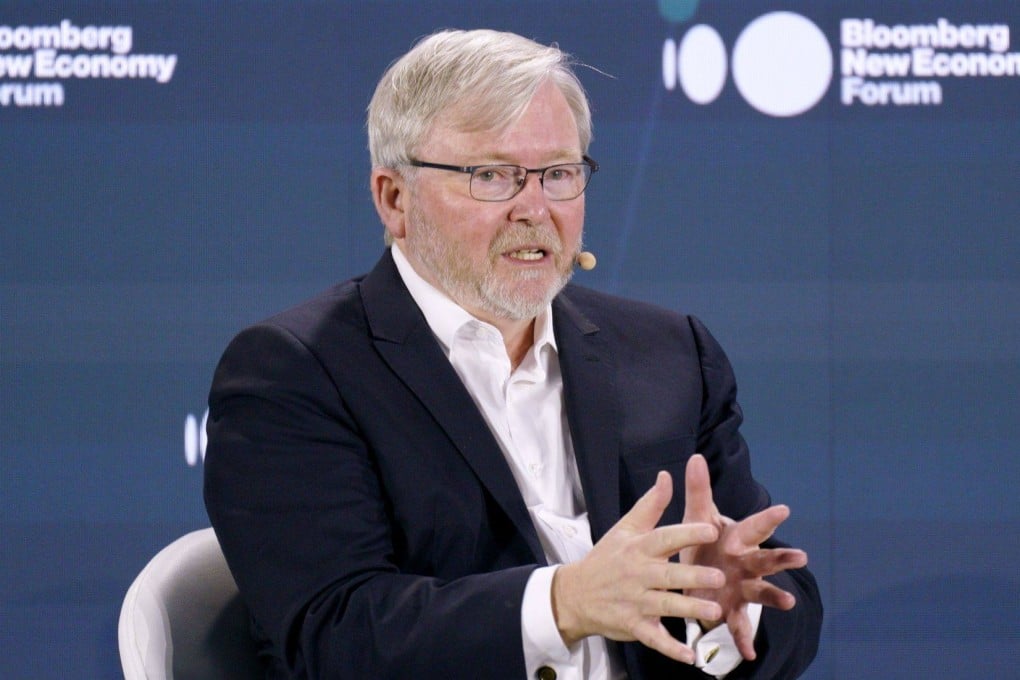Advertisement
China ‘crab-walking’ away from zero-Covid, hardline diplomacy here to stay, Australia’s Kevin Rudd says
- Ex-Australian PM Kevin Rudd said indications are China will emulate a ‘Hong Kong model’ in its zero-Covid policy by easing restrictions by mid-2023
- Rudd also said a recent Xi-Biden dialogue shows the countries want to stabilise strained relations, and that neither wants a war over self-ruled Taiwan
Reading Time:3 minutes
Why you can trust SCMP
13

China is likely to make significant headway in easing its tough zero-Covid policy by mid-2023, with indications that it will emulate a “Hong Kong model” of progressive opening up, former Australian Prime Minister Kevin Rudd has said.
Speaking during a panel discussion on China at the Bloomberg New Economy Forum in Singapore, Rudd said he believed there had been an “inevitable crab walking” away from its zero-Covid policy since the end of the 20th Party Congress.
There are signs the Hong Kong model is being emulated in cities in Guangdong and elsewhere, and barring a new variant, “China will by midyear be well on its way to being out of this”.
Advertisement
“That will have a huge impact on domestic consumer demand which has been suppressed for a long time,” Rudd said.
However, fellow panellist James McGregor, chairman for APCO Worldwide Greater China, said Beijing needed to address dampened consumer confidence due to continued Covid outbreaks and lockdowns in the country.
Advertisement
Advertisement
Select Voice
Choose your listening speed
Get through articles 2x faster
1.25x
250 WPM
Slow
Average
Fast
1.25x